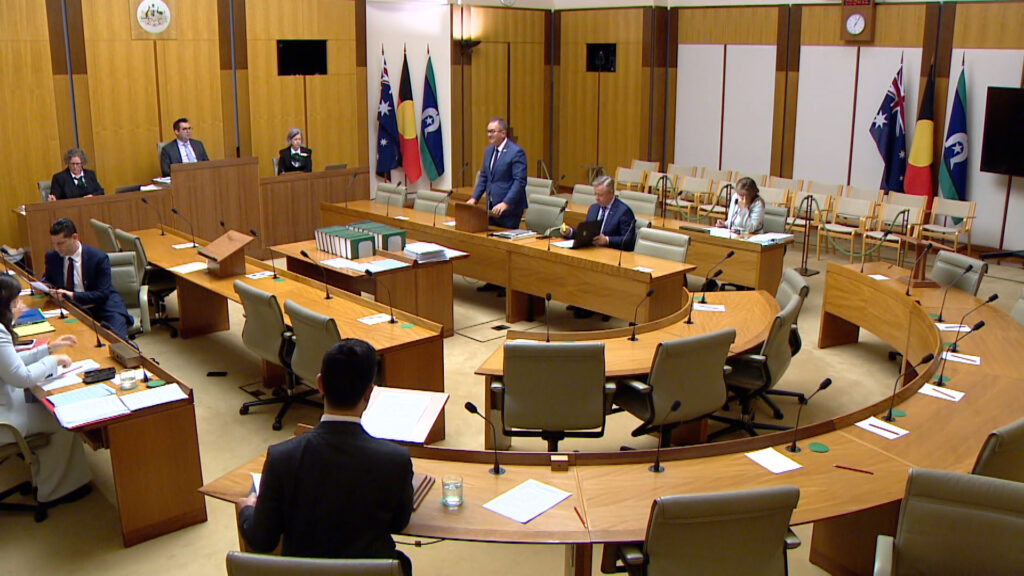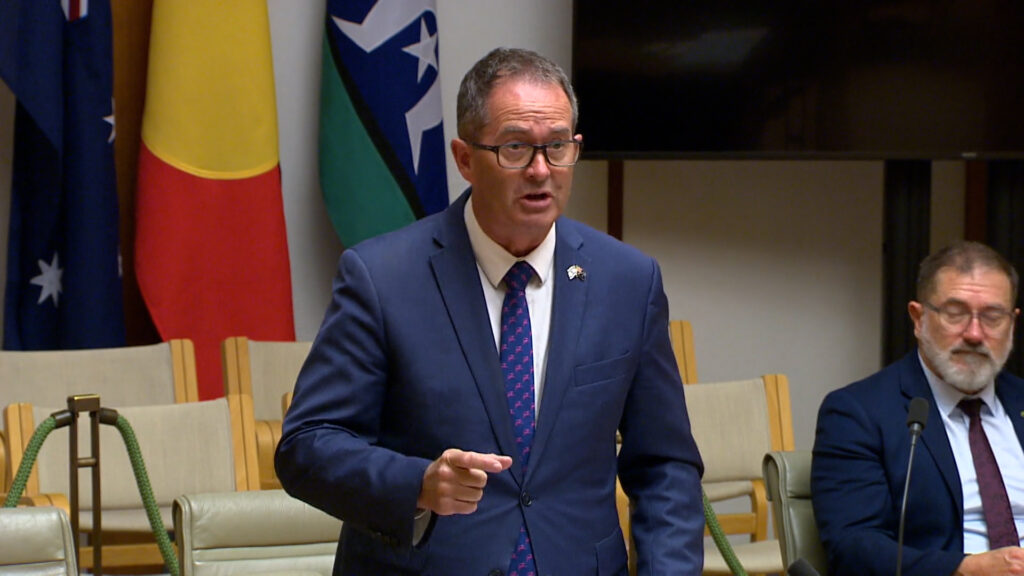Federation Chamber Date: 8 October 2025
Andrew Wallace MP:
I rise to speak on the systemic failings of the Albanese Government in the Home Affairs portfolio. This portfolio should be the foundation of our national security, our border integrity and the public’s confidence that their government can keep them safe. That is government’s first and most important responsibility. Instead, it has become a symbol of mismanagement, confusion and weakness.
The Department of Home Affairs was created in 2017 by the Coalition. It was designed to bring together our key domestic security agencies. It coordinates counter-terrorism, immigration, border protection, law enforcement, cybersecurity and emergency management under one strategic umbrella. I’m very privileged to be the Deputy Chair of the PJCIS, which oversees many of these agencies. Home Affairs was designed to ensure information was shared, decisions were swift and Australia’s defences were united. It worked because it had focus, discipline and accountability. But since Labor took office, that discipline has been dismantled. The Government has treated Home Affairs like a political experiment. It’s rearranging its structure without strategy and without purpose. What was once the cornerstone of national security has been reduced to bureaucratic chaos.
The clearest example of this incompetence was the High Court ruling on indefinite detention known as the NZYQ case. It was an avoidable legal and political disaster caused by this Government’s own actions. You’d remember that over 150 detainees were released into the community, including convicted rapists, child sex offenders and murderers. Some have reoffended since they’ve been released into the community. The then minister made a reckless concession to the High Court that these individuals were being held in indefinite detention when he did not have to make that concession. His decision tied the hands of the High Court and triggered a chain of events that endangered communities across this country. Whether that was through arrogance or incompetence, the outcome remains the same. It was a serious public safety failure that should never have happened.
What was the Government’s response? It was confusion, panic and the ultimate, albeit very long, slow and painful reshuffle. The Member for Hotham and the Member for Scullin were quietly shifted on to new portfolios as if Australians would forget the consequences of their actions. That is not accountability; it is political cowardice.
Fast forward to now. The Prime Minister has handed the Home Affairs portfolio to the Member for Watson, who’s already carrying a pretty heavy load, one would think. The Member for Watson is now responsible for Home Affairs, immigration, cybersecurity, the arts and still serves as Leader of the House. He is, by definition, a part-time Home Affairs Minister. That is not a serious model for national security. It is a recipe for divided attention and diminished leadership.
Since his appointment, we have seen this Government approve the entry of almost 3,000 people from war-torn Gaza without appropriate ASIO vetting. Visas were issued in as little as 24 hours, when such checks can take weeks, if not months. Some have since had their visas cancelled after proper screening. That is not compassion; that is negligence.
Minister, for those who have allegedly committed offences since being released from detention by this Government, what does the Government plan to do with them after they are released from prison, assuming [time has expired?]
Andrew Wallace MP:
The Member for Watson has overseen the return of ISIS brides and their children. The Prime Minister this week has continued to dodge questions on the Government’s role in this. I hope the minister can explain to the Chamber what the definition of “assistance” might be a little bit better than the Foreign Minister has. Minister, what assistance did the Government, the Australian Border Force or other government agencies provide to facilitate the return of the ISIS brides and/or their children to Australia?
This Government confuses sentiment with strategy. It governs by reaction rather than principle. It dismantled the Home Affairs super department in 2022 only to rebuild it again in 2025. It removed ASIO and the AFP from its remit, then brought them back under the same roof. Each restructure has slowed decisions, blurred accountability and weakened Australia’s readiness to respond to threats. Under the Coalition, the process for listing a terrorist organisation took days. Under Labor it now takes months. In an age of fast-moving threats, that delay is unacceptable.
The same dysfunction runs through our immigration system. Net migration has exploded. In two years, more than one million people have been added to Australia’s population. That has placed enormous pressure on housing infrastructure, health services and schools. There are now close to three million temporary visa holders and almost 400,000 people on bridging visas in Australia. The Administrative Review Tribunal, which this Government played with, is buried under more than 110,000 cases. When the Coalition left government, there were 67,000 cases. That’s not sustainable. It is not fair to migrants waiting for certainty, and it is not fair to Australians struggling to find a roof over their heads.
Despite these pressures, the Government still has no clear migration strategy. The 2025–26 Migration Program was not even set in the Budget. Instead we got more reviews, more talking points and no plan. When will the Government set a coherent migration strategy?
Inside the Department of Home Affairs, the picture is no better. The 2025–26 corporate plan is full of buzzwords and bureaucracy. It lists overlapping responsibilities, constant restructures and yet another so-called transformation program that changes nothing. The same department was responsible for 43 per cent of all Commonwealth FOI requests. This is the same FOI requests that the Government seeks to make even harder and more costly to make. So much for transparency. In 2025 the agency tasked with guarding our borders and data is still managing sensitive information on spreadsheets.
Then there’s cybersecurity. Every Australian understands the importance of protecting our digital systems and critical infrastructure, yet this Government’s cybersecurity record is as weak as its record on detention and immigration. Businesses continue to be hacked through years-old vulnerabilities. The minister admits many of these breaches are preventable, yet there’s no enforcement, no guidance and no support for small businesses. The Coalition built the foundations for a strong cyber strategy. We strengthened the ASD and invested in its critical infrastructure protection with a $9.9 billion investment. Labor has squandered that momentum. It talks tough on cyber but delivers delay after delay. In the face of growing foreign interference, this complacency is unacceptable.
At the heart of this failure lies a deeper truth. Australia still does not have a national security strategy. The Coalition and I have been calling for one for years, as have defence leaders, experts and allies. Our AUKUS partners in the US and UK each have national security strategies. Australia does not. We cannot keep patching our national security framework with quick fixes and bumper-sticker bills. Security should be built in, not bolted on. The late Jim Molan put it perfectly when he said:
“… how can there be a defence strategy without an overarching and comprehensive national security strategy?”
The Home Affairs portfolio touches every Australian life. This Government needs to do better.
END
Media Contact: Brendan West – 0402 556 646 – Brendan.West@aph.gov.au


